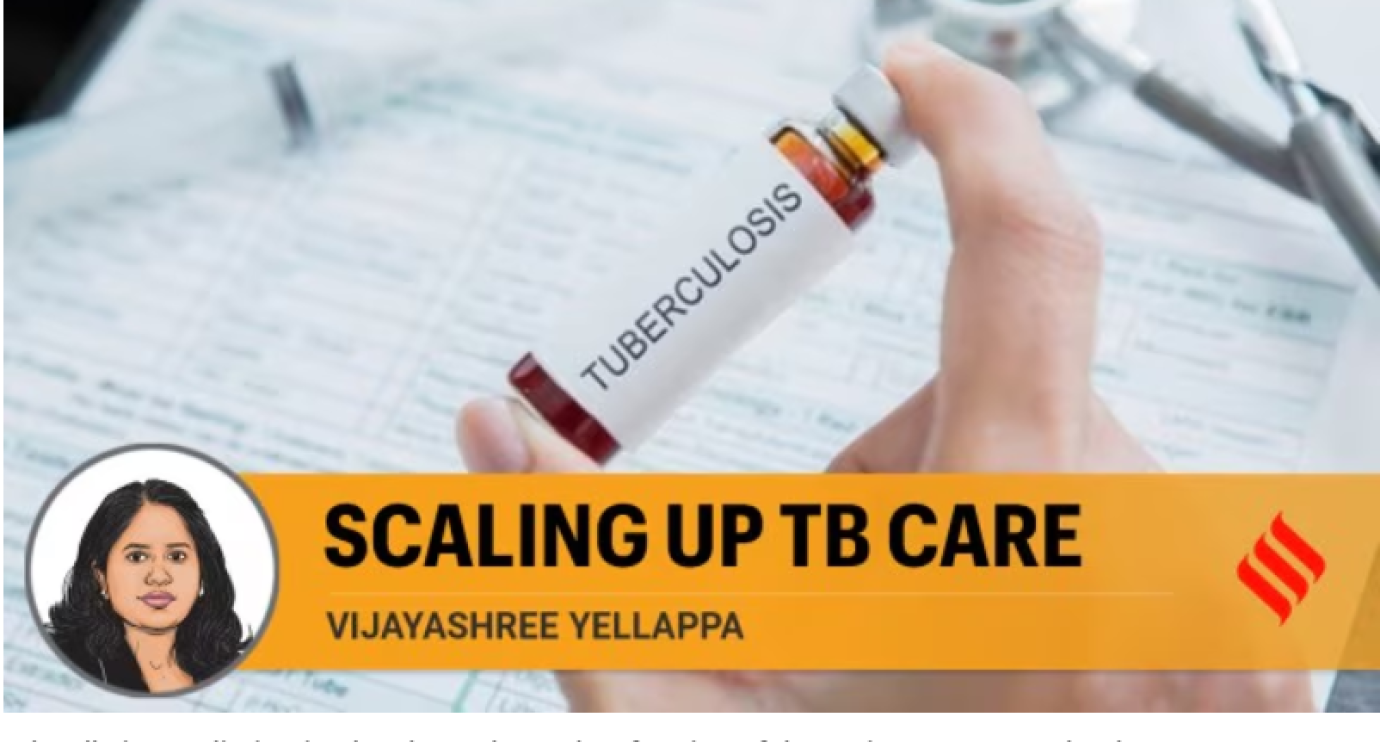With the right incentives and administrative backing, informal healthcare providers and pharmacists can become partners in the country’s public health missions.
Written by Vijayashree Yellappa
Published in The Indian Express
The private sector plays a significant role in healthcare delivery in India. The government’s flagship initiative, Ayushman Bharat PM-JAY, recognises the sector’s reach. It provides insurance coverage in secondary and tertiary care to eligible families. In recent years, wellness centres or Ayushman Aarogya Mandirs have given a boost to primary healthcare capabilities. However, the private health sector continues to provide more than 80 per cent of initial primary care. It is critical, therefore, that the sector is roped in the government’s programme to eliminate diseases such as tuberculosis (TB).
In 2023, India notified a record 25.5 lakh TB patients. More than 8.4 lakh patients were notified by the private healthcare sector. This is a 21-fold increase from 2013. The model pursued by India’s TB elimination programme has taken the lead in terms of public-private collaborations. The Public Private Interface Agency (PPIA) is the most effective form of this intervention. The agency that came into force about 10 years ago has served as an intermediary between the national TB programme and private healthcare providers.
Implemented initially in Mumbai, Patna, and Mehsana, the contemporary iteration of the model, the Patient Provider Support Agency (PPSA), has recently been scaled up across over 200 districts. It has created a network of private health sector providers, including medical practitioners, retail chemists, laboratories, and corporate hospitals to ensure that diagnostic and treatment practices adhere to the “Standards of TB Care” in India. The PPSA also supports the programme in facilitating free diagnostic services and treatment to patients who seek care from the private sector. This is done by linking the patients to social support provisions such as Nikshay Poshan Yojana (a DBT scheme). How do we sharpen this model? Two immediate measures can be useful. One, the programme can leverage a major, underutilised resource — informal healthcare providers. Rural medical practitioners and village doctors have a high trust compact with the community. A study in which this writer participated revealed that in rural Haryana, 54 per cent of informal providers were consulted by two to five TB patients every month. Another survey of 203 providers in West Bengal showed that they, on average, saw five patients with TB symptoms every six months.
The second measure pertains to engaging private chemists better. Retail chemists are often the first point of contact for patients. India has approximately six lakh retail private pharmacists who prescribe an assortment of over-the-counter drugs, including, worryingly, for TB. Their mandate includes the regular monitoring of the H1 schedule and prohibiting over-the-counter sale of antibiotics. However, this rarely happens. Studies also show that government programmes do not engage retail pharmacists adequately in checking the indiscriminate use of medicines.
A hurdle in TB elimination has been that only a fraction of the patients come under the treatment network. The proximity of informal healthcare providers and pharmacists to the community could be leveraged to screen patients. Their support can also be enlisted to refer symptomatic TB patients to public hospitals. These providers can also play a vital role in nudging patients to continue treatment. This is particularly significant given that several studies show that patients often drop out of treatment. Such patients develop the risks of drug-resistant TB. At the same time, the government needs to ensure a mechanism for compliance with existing regulatory norms, especially pertaining to over-the-counter drug sales, record keeping and the notification of diagnosed patients to the authorities.
With the right incentives and administrative backing, informal healthcare providers and pharmacists can become partners in the country’s public health missions, significantly bolstering its capacity to provide quality primary care.
The writer is senior consultant, Division TB Elimination and Health Systems Innovations, at KNCV

